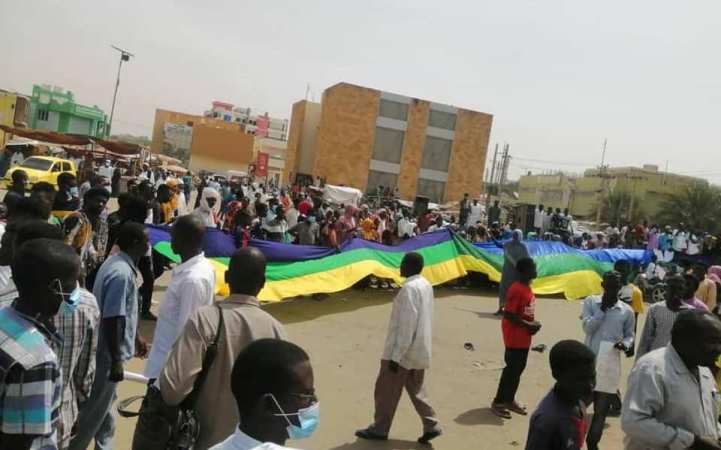The Unfinished uphill task of combating racism in Sudan
By Hussein Arko Minawi
After a long history of bloodshed through which the Sudanese have paid a steep price for freedom and dignity, still, Sudan has to go through a very tough journey to determine where its destination will be anchored. Racism remains the biggest obstacle on the way to building a new Sudan. Unless every practice of racism is banned and every culture related to racism is eliminated, it is impossible to achieve a new Sudan based on equal citizenship and if the culture of racism remains, the huge and wonderful diversity of Sudan can never play a positive role in creating an attractive unity that enhances security and stability.
One of the distinctive outcomes of the December revolution is that it united all of Sudan with strong symbolic and appealing slogans that
inspired whole the nation to overcome many negative impacts resulting from the culture of racism, namely, the slogan raised by the demonstrators, saying “the whole country is Darfur.”
But for some politicians, these slogans were just lip service politically used for that certain moment, and that’s why the language of racism began to prevail again in the political atmosphere, even though many Sudanese think that the December revolution was enough to wash away all the dirt of the past. Unfortunately, racism in our country has become like the volcanoes of the Philippines or seismic activity on the Pacific rims, it subsides for a while and then returns to eruption.
Notably, racists in Sudan resort to using the weapon of racism when the conflict is at its peak due to the clash of visions, particularly when the visions of the two arch-foes, of the old Sudan and the new Sudan at crossroads. The former president Omer Al Bashir uttered his racist words that offended the dignity of women in the entire western region of Sudan, at a moment when the NCP Government was under immense pressure from the armed movements in Darfur.
During the December revolution, and at a very crucial moment of stepping up pressure on the NCP Regime in Khartoum, the intelligence chief General Salah Gosh managed a campaign of racism targeted some students from Darfur and as a result, racist voices were raised against the people of Darfur, but the response was very decisive when a strong slogan of solidarity gave birth as retaliation to racism and chants were everywhere almost across the nation, denouncing racism and arrogance, saying “the whole country is Darfur”.
Amid the atmosphere of extreme tension that followed the palace sit-in on October 16, 2021, there were unprecedented racist reactions spread widely on social media, most importantly, were the statements of Wajdi Saleh, a member of the dismantling committee, who spoke denying the diversity of the Sudanese people, saying that these people came from one place, so they do not look like us. Another racist reaction was the abusive words used against Mr Minawi, Dr Gabriel and Mr Ardol. The symbolization of the banana fruit and linking the three people to monkeys is an obvious indication of racism.
Banana fruit was very carefully chosen from among the many foods served to the sit-in around the palace. Banana was not used here in its direct denotation, but rather it was used in connotation or suggestive sense which metaphorically symbolizes monkey. Racist and hatred reactions that accompanied the palace sit-in indicate that the task of change is still going through a difficult stage, and the biggest challenge for the Sudanese people is how to besiege the potential hotbeds of racism.
This question makes us review our strategy and pay more attention to this shortcoming in addressing the root cause of the Sudanese crisis, as the evidence of the conflict in our country shows that it has not happened in history, the agenda of racism was included at the negotiating table, whether in Addis Ababa in 1972 or the rest of the various trips for peace negotiation that cost Sudan a lot of time and effort for more than 40 years.
Sudan is now in a phase of transformation and many issues are waiting to be addressed and reconsidered, among these, values of tolerance and human rights. It is very important that the anti-racism issue, be on the agenda of all upcoming negotiations and conferences that are related to addressing the root cause of the crisis in Sudan.

